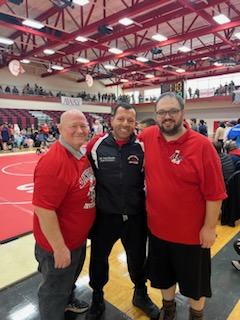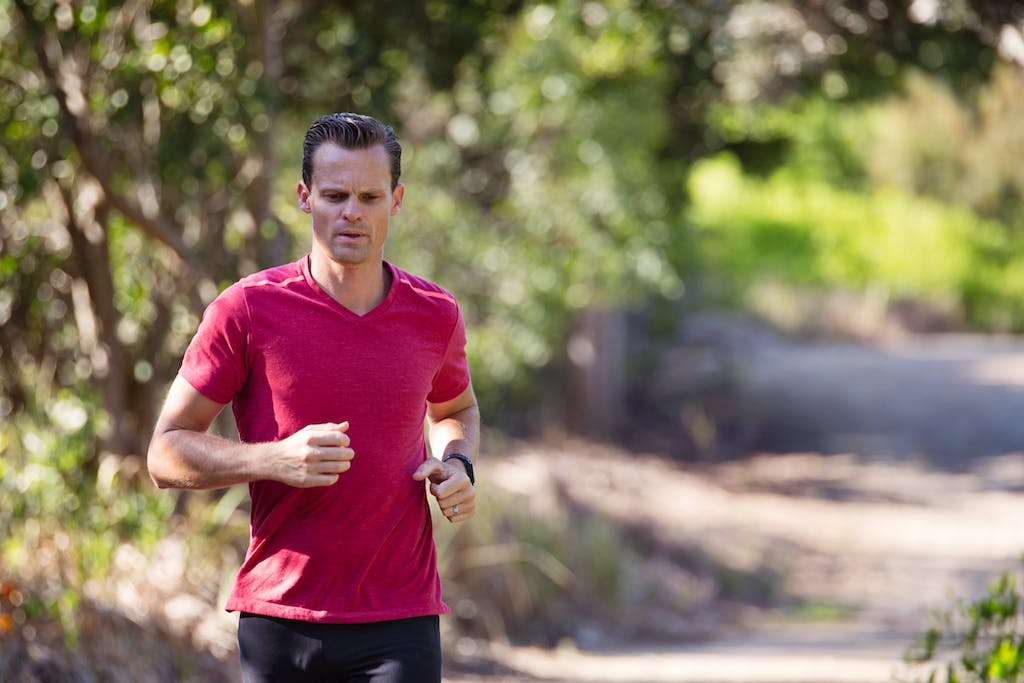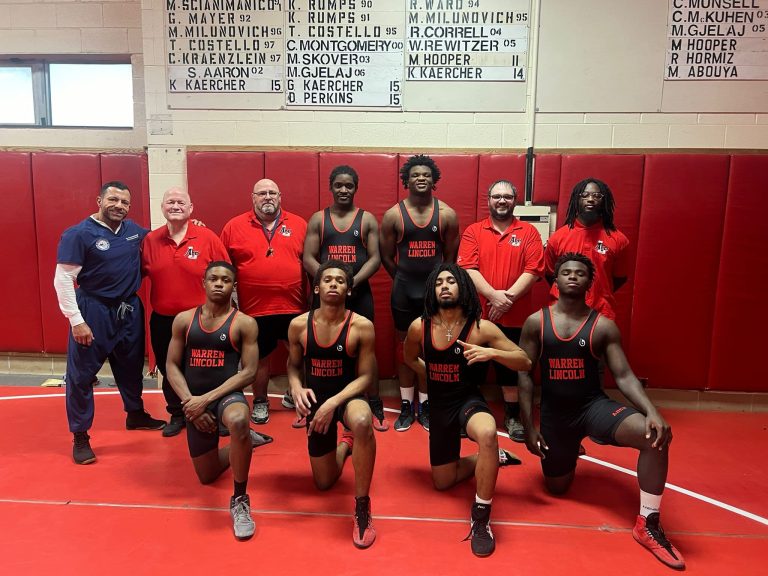Wrestling Season Wellness: Tips from Warren Lincoln Team Physician Dr. Sam Awada
Dr. Sam Awada, is a family medicine specialist with more than 20 years of medical experience and is an expert in sports medicine. As a former chief of family medicine, Awada served as the team physician for Warren Lincoln High School’s varsity wrestling teams during the Macomb County Wrestling Invitational Jan. 13, 2024. As a team physician for wrestlers, Awada understands the demands and challenges that come with the intense training and competitions of the season. While striving for victory on the mat, Awada reminds athletes that it is crucial to prioritize their health to perform at their best and minimize the risk of injury.
“My priority with my athletes is to support their health and performance goals throughout the wrestling season. By prioritizing proper nutrition, injury prevention, and recovery, they can stay healthy, resilient, and be more competitive on the mat,” Awada said. “The key thing is to listen to your body and communicate openly with your coach and physician. Don’t ignore nagging injuries and understand when you are run down and might need additional rest.”
Following are three key tips from Dr. Awada to help wrestlers stay healthy and strong throughout the season:
1: Prioritize Nutrition: Nutrition plays a critical role in fueling the body for the demands of wrestling. Aim for a well-balanced diet rich in lean proteins, complex carbohydrates, healthy fats, and plenty of fruits and vegetables. Stay hydrated by drinking water regularly throughout the day, especially before, during, and after practices and matches. Avoid sugary drinks and excessive caffeine, which can lead to dehydration and energy crashes.
2: Get Sufficient Rest and Recovery: Rest and recovery are essential for optimal performance and injury prevention. Make sure to get an adequate amount of sleep each night, aiming for 7-9 hours for optimal recovery. Also consider incorporating active recovery techniques such as foam rolling, stretching, and low-impact exercise such as stationary biking to promote circulation and reduce muscle soreness.
3: Listen to Your Body and Communicate with Your Coach and Physician: Pay attention to any signs of fatigue, pain, or discomfort during training and competition. If you experience persistent or worsening symptoms, communicate with your coach and team physician to address any concerns and seek appropriate medical evaluation and treatment. Be proactive in discussing any pre-existing medical conditions or injuries with your physician to develop a personalized plan for managing your health during the season.

Dr Sam Awada is a Family Medicine specialist with well over 20 years of medical experience serving Michigan communities. As former Chief of Family Medicine and current professor of family medicine at multiple universities, Dr Awada’s commitment as a family physician and his dedication to his patients remains unparalleled.





